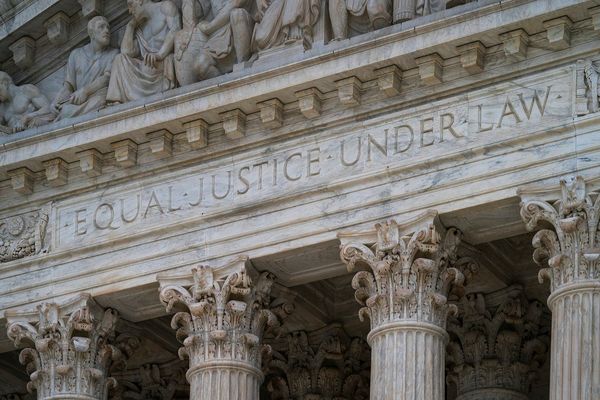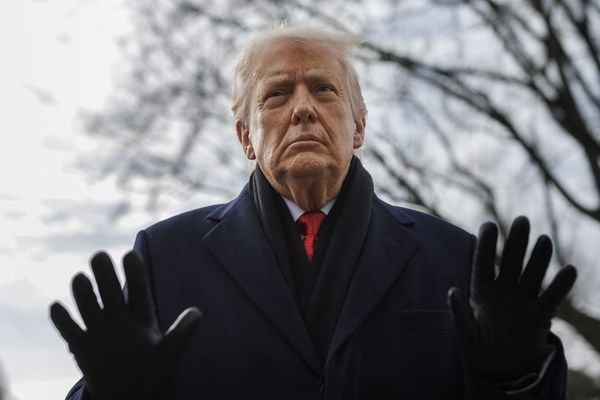
Rounds of celebratory gunfire rang into the night sky and people cried tears of joy and disbelief on Thursday as news of a peace deal reached those in devastated Gaza – and in Israel, where relatives have anxiously awaited the release of hostages detained since the war broke out two years ago.
“It’s a huge day, huge joy,” exclaimed Ahmed Sheheiber, a displaced Palestinian, crying over the phone from his shelter in Gaza City as he learned of the deal.
“I can’t believe the news,” said Ayman Saber, a resident of Khan Younis, a city in the Gaza Strip, while in the coastal area of Al-Mawasi people gathered to chant in unison “Allahu Akbar”, meaning God is greatest, and fire celebratory rounds into the air.
What had initially appeared an improbable 21-point peace plan put forward by the US president, Donald Trump, was on Thursday agreed to in its “initial phase” by Israel and Hamas after days of indirect talks in the Egyptian resort city of Sharm El Sheikh.
The news could not come soon enough for families in Israel who for two years have lobbied and prayed for their relatives taken hostage by the Palestinian militant group Hamas on 7 October 2023 to be released.
On the streets of Tel Aviv tearful families hugged, cheered, some popping champagne, as they learned of the news. “Matan is coming home. These are the tears I prayed for,” said one mother of an Israeli hostage detained in Gaza, as reported by Haaretz.
Some of those gathered in the city’s hostage square said Trump should be recognised for his role in brokering the deal, calling for a “Nobel prize to Trump” as they gathered in the early hours of the morning to celebrate.
Emily Damari, a British-Israeli who was held captive by Hamas for more than a year before being released in January, posted a video to her Instagram celebrating the news with friends who included fellow former hostage Romi Gonen.
The group could be seen hugging each other and dancing around a room as they toasted “L’chaim”, meaning “to life”.
As part of the agreement, Hamas said it would release the 20 hostages still alive as early as this weekend, with sources saying an exchange with Palestinian prisoners would happen within 72 hours of the deal being signed, which is expected to be Thursday.
Describing the deal as a “great day of Israel”, the Israeli prime minister, Benjamin Netanyahu, said: “With God’s help, we will bring them all home.”
Hamas took 251 people hostage into Gaza in 2023, where 47 remain, including 25 the Israeli military says are dead.
“The entire nation is waiting and excited,” said the Israeli defence minister Israel Katz in a post on X. “I extend a big hug to the families of the hostages for the expected return home of their loved ones, including IDF soldiers and fallen soldiers.”
Netanyahu said he would convene the government on Thursday to approve the Gaza ceasefire agreement, while Hamas called on Trump and guarantor states to ensure Israel fully implements it.
Sparked by the 7 October attack on Israel that killed about 1,200 people, many of them civilians, Israel’s retaliatory military campaign has been devastating, killing more than 67,000 people, including many children, as aid blockades have resulted in starvation and acute hunger.
The war has razed Palestinian territory and unleashed a major humanitarian crisis.
Eyad Amawi, a Palestinian aid coordinator displaced in central Gaza, said he was still comprehending news of the ceasefire agreement.
“We believe and don’t believe. We have mixed feelings, between happiness and sadness, memories, everything is mixed,” he said.
Amawi said he hoped the deal was implemented as agreed so that people could return to their homes and begin to “renew the [will] and the hope for life” in Gaza where many children are injured and rubble is everywhere.
His biggest fear, he said, was Israel creating obstacles to implementing the agreement.
“We need to fix everything here, especially the psychological effects to [continue] with our lives.”
Even as initial celebrations unfolded, details of the agreement remained unclear on Thursday, including whether the parties in Egypt had made any progress on thornier questions about the future of the conflict, such as whether Hamas will demilitarise, as Trump has demanded, and how the war-torn territory will be governed in future.
If it is implemented, the deal would bring the two sides closer than any previous effort to halting a war that has evolved into a regional conflict, drawing in countries such as Iran, Yemen and Lebanon, and reshaping the Middle East.







